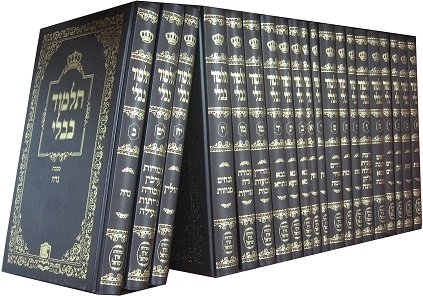- Home
- Krav Maga Blog
- Krav Instructors
- Train in Israel
- Tour Train Israel
- Krav Shop
- DVD
- Kickboxing
- IKI Near Me
- Seminars
- IKI Membership
- On-Line Training
- Krav Maga Training
- Testimonials
- History Krav Maga
- Instructors Page
- Past Blogs
- Spanish
- Italian
- Certification
- Contact
- Holland Seminar
- Vienna Seminar
- Poland Seminar
- Italy Seminar
- Belt Requirements
Foundation of Wisdom
By Moshe Katz
September 21, 2019, Israel
Tah shma - Come, Let us study (Aramaic)
משרבו תלמידי שמאי והילל שלא שימשו כל צורכן - רבו מחלוקת בישראל, ונעשית תורה כשתי תורות
(תלמוד בבלי מסכת סנהדרין פח עמוד ב) ( תלמוד בבלי מסכת סוטה דף מז עמוד ב).
"With the increase in the students of (rabbi) Hillel and Shamai, who had not served sufficiently, divisions increased in Israel, and it became as if there were two Torahs, (two different ways of life). (Babylonian Talmud, tractate Sotah and tractate Sanhedrin)
What does this mean and how is it relevant to us?
The rabbis stress that as important as knowledge is, it is perhaps more important to "serve the master". This seems confusing. The saying is, "Serving the masters of Torah is greater than studying it."
The rational soon becomes clear.
The Master is the experience.
It is very easy to make mistakes when all you have is "book knowledge". It is very easy to miss the point when all you do is memorize answers, or techniques. But if this is your approach then true wisdom will always allude you. What the Talmud is stressing here is not to neglect your book studies, of course not, but that one who seeks true wisdom must also "serve the master", i.e. experience that master in person. The wisdom must become a part of the person, rather than "apart" from that person. The Master is the experience. The subtleties are picked up "in between the lines", in the casual conversations, in taking walks after class, in chatting over coffee.
"אפילו קרא ושנה ולא שימש תלמידי חכמים הרי זה עם הארץ" (ברכות מ"ז ע"ב ועיי' סוטה כ"ב ע"ב)
"Even if one read and repeated his reading but did not serve the scholars, behold we have an ignoramus, (a common man of the land)" (Talmud, Tractate Brachot, and Sotah)
Again we see the Talmudic admonition that to become a true teacher, a man of wisdom, requires more than book knowledge, it requires a certain kind of experience.
Sometimes, when in doubt, I have no books to consult, no one alive to ask, but then I recall something from my dear father, or one of my many outstanding Talmudic teachers, and I recall. I recall a gesture, an expression, an off-hand remark, and the answer appears to me. The answer was not in a book, it was in a heart. And I felt it.
Through the passage of time, and place, from long ago, from a different place, from someone no longer among the living, a lesson, a teaching will emerge. Suddenly I will see my teacher in front of me again, a young man full of life, trying to reach us and teach us, the young ones. I will see him and I will feel his heart, his message.
The passage of time, the passage from the other word to this one, is wide open. I see my teachers, I hear their lessons. But this comes only from "serving the master", from being with them, from truly listening.
The rabbis of the Talmud knew what they were talking about, they understood what so many miss today. See your teacher!
My teachers are still alive, in my mind, though their physical essence has long since past from this earth. I see smiles and hear laughter and I hear Rabbi J. Wehl saying....make no mistake about it, this lesson is for you Katz!
And I am grateful that all these years later I understand the lesson.
Come, Let us study together, as the rabbi puts his arm around the young student, and the tradition is passed on.....

The Babylonian Talmud, 500 years in the making, many hundreds of years of wisdom. Year of completion , 500 C. E.
Krav Maga Application
The application to Krav Maga should be obvious. The internet is full of self proclaimed teachers. They may have attended a few classes here and there, watched a few youtube videos, attended some seminars and then put together the "latest generation of Krav Maga!" or such other nonsense.
Who was their teacher? How long did they serve the master? What was their relationship with their teacher? If you do not have the answer to this, if they are no longer on speaking terms, if they no longer HONOR their teacher, than my advise is...walk away, fast.
When teachers are not honored, society has no future.
Like the blogs? Own the books, all blogs now available in "Footsteps from Judea", the collected blogs by Moshe Katz.